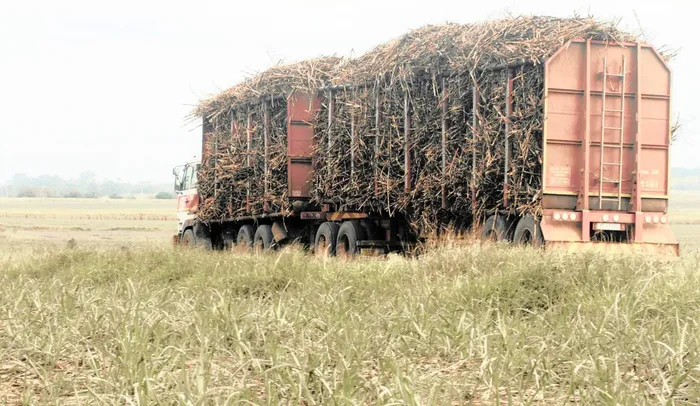SA sugar industry set for improved harvest; yet tariff uncertainty threatens the sector's future
AGRICULTURE

SA Canegrowers says South Africa is currently experiencing a surge in deep-sea sugar imports. Much of this imported sugar is heavily subsidised in its country of origin, arriving in South Africa at a price far below local production costs undercutting local growers’ sugarcane revenue and their financial sustainability.
Image: Karen Sandison/Independent Newspapers
Higgins Mdluli
South Africa’s sugarcane growers are expecting a significantly improved harvest this season, following a rebound in rainfall after last year’s drier-than-normal conditions. The current estimate for the 2025 season stands at 17.7 million tons of sugarcane, up from 16.47 million tons in the previous year – which was the lowest crop in eight seasons.
While this recovery in yield is welcome news, the industry’s economic outlook remains under serious threat due to delays in adjusting South Africa’s import tariff, the flood of cheap imports into the country and the looming 30% tariff from the United States on South African sugar exports.
The delay in adjusting our own sugar import tariff to reflect current global realities is undermining the competitiveness of local producers. At the same time, the US tariff threatens our access to what has historically been one of our key premium export markets.
South Africa is currently experiencing a surge in deep-sea sugar imports. Much of this imported sugar is heavily subsidised in its country of origin, arriving in South Africa at a price far below local production costs undercutting local growers’ sugarcane revenue and their financial sustainability.
Importers in South Africa are taking advantage of the gap between the current import duty and the level that should be in place, as provided for in legislation. However, the large amounts of cheap sugar entering South Africa do not benefit consumers - importers continue to sell at local retail and industrial prices, increasing profits at the direct expense of local farmers.
SA Canegrowers represents over 24 000 small-scale and 1 200 large-scale sugarcane growers in South Africa. These growers provide jobs and economic stability in rural Mpumalanga and KwaZulu-Natal, in areas where opportunities are scarce.
Unrestrained sugar imports displace local product from shelves or as input for local commercial users, which lowers domestic sales. This lower level of local sales forces the industry to export more sugar at a significant price disadvantage.
In 2017/18 and 2018/19, a similar delay in enacting fair import tariffs – as per South African government regulations – meant the South African sugar industry had to export large volumes of sugar to a highly distorted international market leading to significant financial losses for the industry.
A repeat of this scenario will lead to job losses, as growers are also already facing many other threats, including the sugar tax and rising input costs.
The South African sugarcane industry produces sufficient sugar to meet all demand in the Southern African Customs Union (SACU) and still have excess volume to export. With production levels back to normal, but with supressed local demand due as foreign sugar that displaces local sugar, more sugar will have to be exported at a considerable loss this year.
This year, the global trading environment is even more uncertain. The likelihood of a 30% tariff on South African products entering the US, at least for the time being, further disadvantages South African sugar on the global market.
We urge government to move swiftly: to revise the import duty in line with current global prices and to prioritise a new trade agreement with the US that safeguards our export potential.

Higgins Mdluli is the chairman of SA Canegrowers.
Image: Supplied
* Higgins Mdluli is the chairman of SA Canegrowers.
** The views expressed do not necessarily reflect the views of IOL or Independent Media.
BUSINESS REPORT